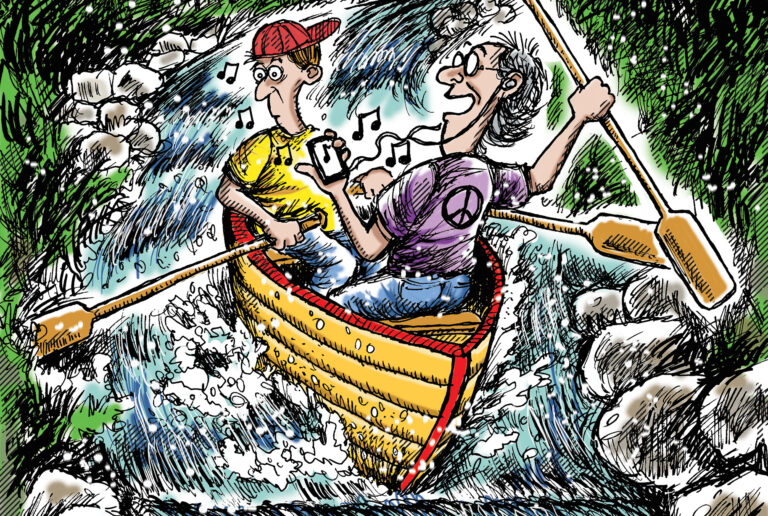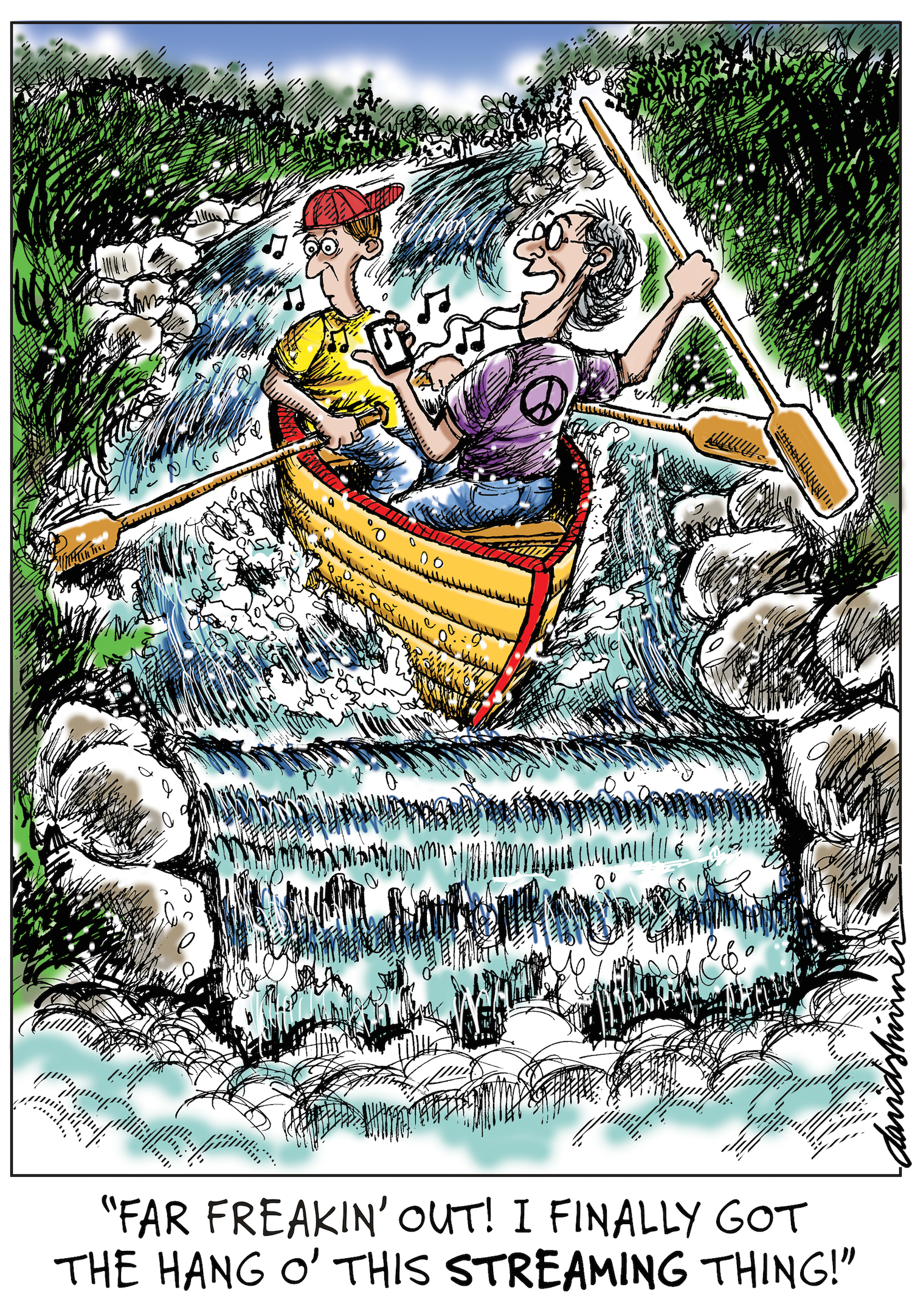David Ray Skinner was born and raised in Nashville, and he developed an interest in music and drawing at an early age. When he was still in junior high school, he co-founded a garage band called “Swamp Gas” and had his first cartoon published in the Nashville Banner. He studied art and journalism at Carson-Newman College and served as editor-in-chief of the school newspaper his junior and senior years. While at Carson-Newman, he also drew editorial cartoons for the Morristown Citizen-Tribune.
Skinner’s first job after college was at an East Tennessee weekly, where he worked as a reporter and editorial cartoonist and also contributed a weekly comic strip called “Tales of Space Helen.” In 1977, his love for art, design and music landed him in New York, where he became the cartoonist and, later on, Art Director, for Record World magazine. While at Record World, he did cartoons for such notables as Elton John, Stephen Stills, Graham Nash, Led Zeppelin, and Billy Joel. He spent his last few years in New York art directing Doubleday’s Literary Guild Magazine. At Doubleday, he created marketing treatments for books by writers such as James Michener, Peter Maas, Stephen King, and celebrities such as Candice Bergen, Dinah Shore and Dr. Ruth Westheimer.
In 1984, Skinner moved to Atlanta and co-founded a design and advertising agency called Indelible Inc. In the early 90’s, Skinner became involved in various musical projects, including Johnny Cash’s Return to the Promised Land, for which he designed the logo and co-wrote the title track with Cash and Hugh Waddell. He also wrote and recorded the Civil War concept album, John Hunt Morgan: A Southern Legend, which was considered for Gettysburg College’s famed Lincoln Prize, an award given annually to a literary work focusing on the American Civil War.
In 2005, Skinner formed a marketing, design, illustration and advertising agency called Bridgital.Some of his more recent works include a 20-foot bas-relief sculpture over the entrance to the University of West Georgia’s new football stadium, jingles that have aired weekly on the Grand Ole Opry and a watercolor hanging on the office wall of Supreme Court Justice Clarence Thomas.


